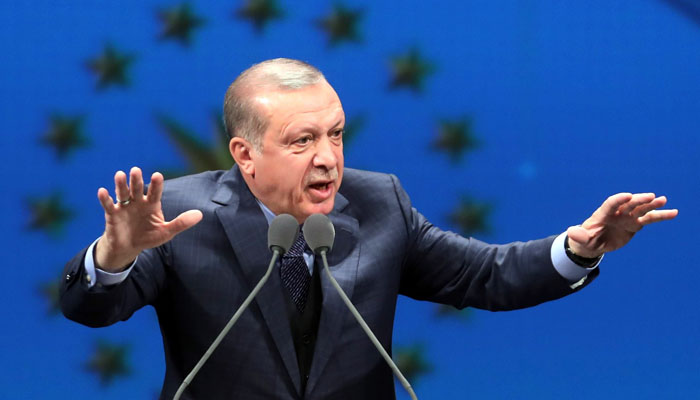Turkey’s President Recep Tayyip Erdoğan said on Wednesday that the main opposition Republican People’s Party (CHP) is acting in line with terrorist groups in a “no” campaign for an April 16 referendum on a constitutional package that will expand his powers enormously.
Speaking during a program in İstanbul on Wednesday, Erdoğan underlined that Abdullah Öcalan, jailed leader of outlawed Kurdistan Workers’ Party (PKK), also supports the “no” camp, similar to the CHP.
“Who says ‘no’ currently? The leader of the terrorist organization at İmralı [where the leader of the outlawed PKK is incarcerated] and the heads of the terrorists in the Kandil Mountains [where PKK headquarters is located]. But right now, the head of the opposition [Kemal Kılıçdaroğlu] is acting in line with them. It is impossible to understand this,” he said.
Accusing the CHP of conducting “no” campaigns in Europe along with PKK supporters, Erdoğan said, “They are acting with those who did not grant permission to my minister to fly to the country and imprisoned my female minister in a car, refusing to let her into the Netherlands.”
A recent row between Turkey and European countries reached new heights when Turkish Minister of Family and Social Policy Fatma Betül Sayan Kaya was expelled from the Netherlands on March 11 after she insisted on going to the residence of the Turkish Consulate General in Rotterdam to hold a campaign rally with Turkish expatriates.
Turkey’s relations with Germany, Austria and the Netherlands have been strained over these countries’ refusal to allow Turkish government officials to hold rallies there ahead of the referendum in Turkey in April.
Turkey will hold a referendum on April 16 on a constitutional reform package that will introduce an executive presidency in the country if approved.

